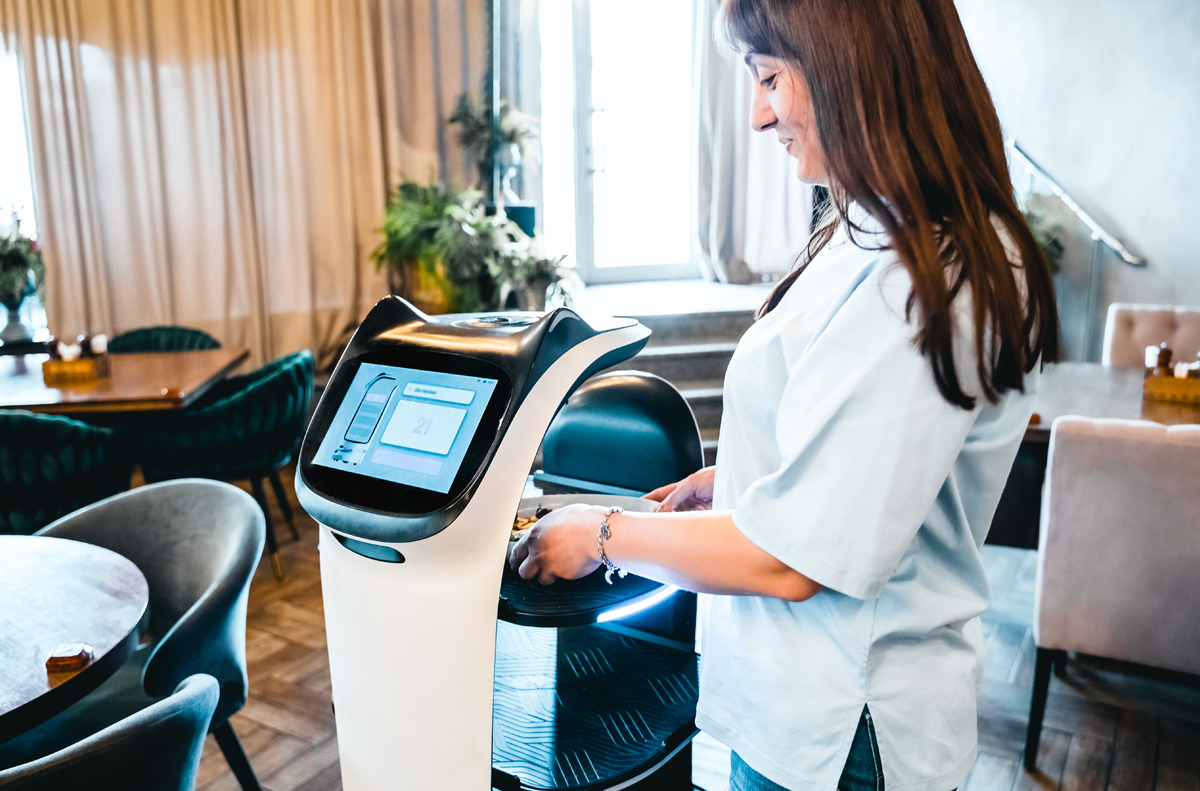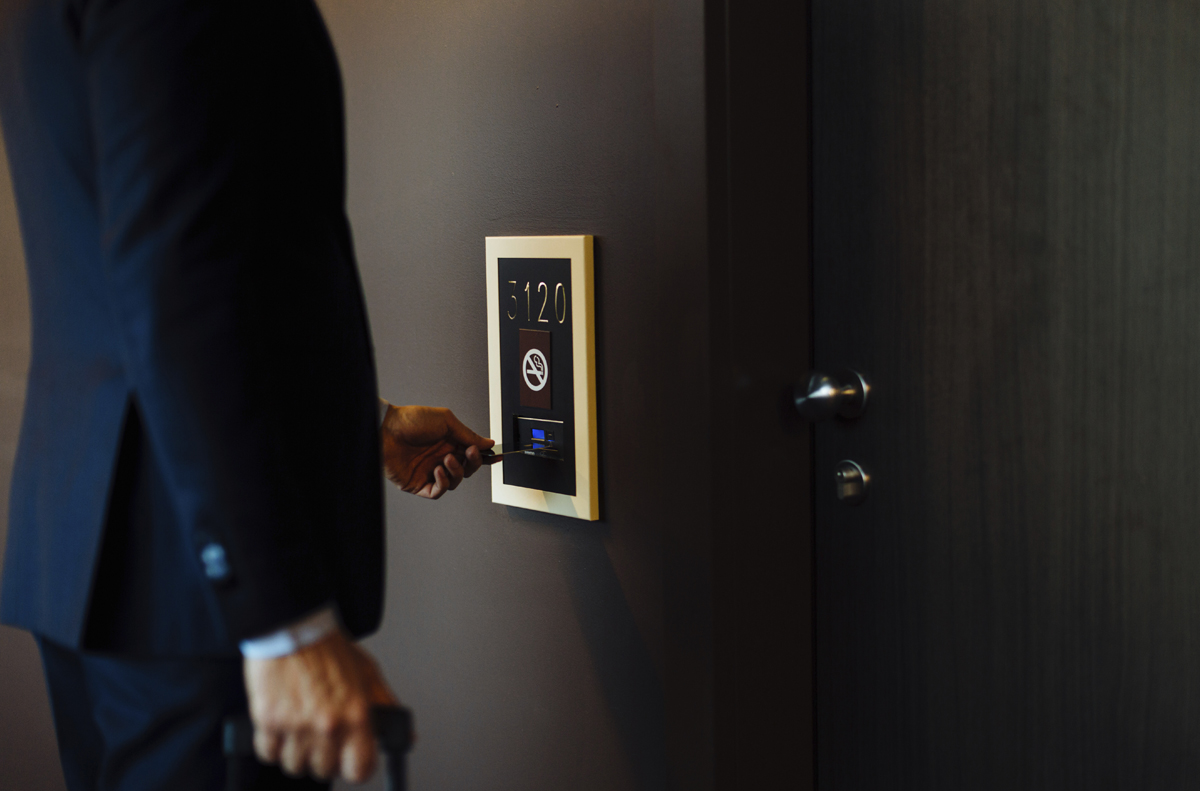
In an age where technology is revolutionizing every part of our lives, the hotel industry is adapting to the shift.The integration of AI, automation, and hotel management systems is a transformative force reshaping hotel operations and guest interactions.
Revolutionising Hospitality: The Impact of Technology on Guest Experience and Hotel Operations
From seamless check-ins to personalized services, technological innovation is redefining the industry
Central Reservation Systems (CRS) streamline the booking process by allowing guests to easily check availability, make reservations, and receive real-time confirmations. They help hotels manage inventory across multiple distribution channels, ensuring optimal occupancy and revenue management.
Virtual Reality (VR) in hospitality lets potential guests take immersive tours of hotel rooms, aiding their booking decisions.
Augmented Reality (AR) enhances the guest experience by offering interactive, location-based information about amenities and nearby attractions on smartphones.
Blockchain technology ensures secure transactions and enhances trust in booking processes, while also streamlining record-keeping.
Smart hotel solutions with IoT enable guests to control room settings, such as lighting and temperature, from their mobile devices.
Hotel mobile apps enhance the guest experience by streamlining bookings, check-ins, and access the services on the go. Guests can personalise their stays, communicate directly with staff, and receive real-time updates about promotions and events.

These technologies not only boost guest convenience but also streamline operations, allowing hotels to provide personalized experiences.
Overall, these innovations create a more engaging, secure, and personalised environment for guests.
Automation streamlines processes, reducing the burden on staff and allowing them to focus on what truly matters: providing exceptional hospitality. In this blog, we’ll explore various ways AI and automation are revolutionising the hotel industry. Thus, fostering innovation and establishing new benchmarks for guest satisfaction. Let us delve into the future of hospitality!
Artificial intelligence (AI) and automation can be important in the hotel industry for a number of reasons, including:
- Enhanced Guest Experience: AI can personalise services by analysing guest preferences, allowing hotels to tailor recommendations for dining, activities, and room settings.
- Efficient Operations: Automation optimizes booking management and check-in/check-out processes, minimizing wait times and enabling staff to focus more on guest engagement.
- Dynamic Pricing: AI algorithms can analyse market trends and competitor pricing in real-time, enabling hotels to adjust rates dynamically and maximise revenue.
- Predictive Maintenance: AI can monitor equipment and predict maintenance needs before breakdowns occur, reducing downtime and improving service reliability.
- Customer Support: Hotel Chatbots and virtual hotel voice assistants powered by AI can provide instant responses to guest inquiries. Thus, enhancing customer satisfaction and operational efficiency.
- Data-Driven Insights: AI can analyse guest data to identify trends and preferences, helping hotels make informed decisions about marketing and service offerings.
- Improved Security: Automation can enhance security measures through smart access systems and surveillance, ensuring a safer environment for guests and staff.
- Sustainability Initiatives: AI can optimise energy use in hotels, helping to reduce waste and promote eco-friendly practices while also cutting costs.
By utilizing these technologies, hotels can craft memorable experiences for guests while enhancing their profitability.
Cygnett Hotels & Resorts, is a rapidly emerging homegrown brand in the Indian hospitality sector. With its home-grown technologies, Cygnett is making remarkable strides with its diverse portfolio. Under Mr. Sarbendra Sarkar’s leadership (Founder & MD) Cygnett Hotels & Resorts, the company has achieved remarkable growth over the last decade. Thereby, establishing itself as a key player in India’s mid-segment hotel market.

Insight into the Cygnett home grown technologies –
1) Hotel CRM software
Implementing a CRM system tailored for hospitality can significantly enhance guest relationships and streamline operations, resulting in increased satisfaction and revenue.
Advantages of Using CRM in Hospitality
- Enhanced Guest Experience: By understanding guest requirements, hotels can create personalised experiences that lead to higher satisfaction.
- Increased Revenue: Targeted marketing campaigns and loyalty programs can boost bookings big time and encourage upselling of services.
- Improved Marketing Efforts: Use guest data like their preferences, behaviour patterns, past bookings, demographic information to segment and target marketing campaigns effectively. This aids in targeting the right audience with the appropriate message.
- Integration with Other Systems: Seamlessly integrate with property management systems (PMS), point of sale (POS) systems, and marketing tools for a unified approach.
- Mobile Access: Provide mobile-friendly access for staff to manage guest interactions and updates on the go.
- Better Guest Retention: Maintaining strong relationships through effective communication and personalised offerings can lead to enhanced loyalty.
- Operational Efficiency: Automating daily tasks frees up staff to focus on providing excellent service, improving overall efficiency.
2) Hotel PMS Software
A PMS software is a unified digital platform that facilitates in managing the daily operations of a hotel business. A PMS software is mandatory for modern hospitality operations, helping businesses manage their resources effectively while improving guest satisfaction.
Advantages of Using PMS
- Improved Efficiency: Automates and streamlines daily tasks, reduces manual errors and saves time for staff.
- Enhanced Guest Experience: Provides staff with the information required to offer personalised service. A PMS can offer a tenant portal where residents can view their accounts, make payments, and interact with you. It can also aid in gathering feedback and reviews from tenants.
- Increased Revenue: A PMS can enhance your revenue by lowering operational costs, boosting the occupancy rate, and elevating customer satisfaction.
- Better Communication: Facilitates communication between departments (front desk, housekeeping, maintenance)
- Better cash flow: A PMS helps in optimising your cash flow by minimising errors, preventing late fees, and monitoring income and expenses.
- Enhanced data security: A PMS can offer data encryption capabilities that safeguard sensitive customer information from unauthorised access. Cybersecurity is crucial in protecting guest data and maintaining the integrity of hotel operations, especially as digital interactions increase.
- Real-time data: A PMS can deliver up-to-date information on customer feedback, occupancy rates, average daily rates, and revenue per available room.
- Lower maintenance and repair expenses: A PMS can assist you in managing your property more effectively, leading to decreased maintenance and repair costs.
3) HRMS software
An HRMS software is a digital tool developed to simplify and automate HR processes and functions. Thus, enabling organizations to manage employee data efficiently.
Advantages of Using HRMS Software
- Increased Efficiency: Automates routine HR tasks, reducing administrative workload and allowing HR staff to focus on strategic initiatives.
- Improved Compliance: Helps organisations stay compliant with labour laws and regulations through accurate record-keeping and reporting.
- Cost Savings: Reduces operational costs associated with manual HR processes and improves resource allocation.
- Employee engagement: HRMS can assist businesses in enhancing their engagement initiatives and organisational culture. Managers can utilise HRMS to pinpoint areas where employees excel and where they require support.
- Better Decision-Making: Offers insights and analytics that inform HR strategies and workforce planning.
- Training and development: HRMS can assist in equipping employees with the skills necessary for success. This can improve business performance while also fostering individual growth among employees.
- Enhanced Employee Experience: Provides employees with easy access to their information, benefits, and improves overall satisfaction.
4) DMS software
DMS software is imperative for businesses looking to improve their document handling processes by providing real-time access and secure sharing capabilities. Thus, enhancing productivity, and ensuring compliance.
Advantages of Using DMS Software
- Improved Efficiency: Reduces the time spent searching for and managing documents enabling employees to focus on critical tasks.
- Enhanced Collaboration: Encourages teamwork by providing a centralised platform for document sharing and collaboration.
- Better Security: Safeguards sensitive information through encryption, access controls, and regular backups.
- Streamlined Compliance: Helps organisations in adhering to legal and regulatory requirements by maintaining proper document management practices.
- Cost Savings: Reduces the requirement for physical storage space and lowers printing and paper expenses.

5) Brand & Operational Standard audit software
This is a specialised tool designed to evaluate and enhance a company’s branding and operational processes.
Advantages of internal brand & operational audit software
- Enhanced Brand Consistency: Ensures that all aspects of branding are maintained across the organisation, reinforcing the brand image.
- Operational Efficiency: Identifies areas for improvement in operations, leading to increased efficiency and reduced costs.
- Informed Decision-Making: Facilitates valuable insights that help management make data-driven decisions regarding brand strategies and operational practices.
- Risk Mitigation: Helps identify potential risks and compliance issues before they escalate, protecting the brand and the organisation.
- Continuous Improvement: Enable ongoing assessments that promote a culture of improvement within the organisation.
6) Task management software
Task Management Software is a digital tool designed to help individuals and teams structure, prioritize, and track tasks and projects. This software is imperative for organisations looking to increase efficiency, streamline workflows, and boost team collaboration.
Advantages of Task management software
- Improved Organisation: Assists individuals and teams in staying on top of tasks.Thus, minimising missed deadlines.
- Enhanced Productivity: By prioritising tasks and managing workloads effectively, teams can be more productive and accomplish more in less time.
- Accountability: Clearly defined tasks and deadlines bring a sense of ownership among team members, resulting in greater accountability.
- Visibility and Transparency: Provides clear information on who is working on what, making it easier to manage resources and facilitate alignment with project goals.
- Better Collaboration: Promotes collaboration by offering a common platform for communication and task management, enhancing overall project outcome.
Conclusion
The hospitality industry must recognize the critical importance of technological innovation, as it is essential in today’s landscape. By embracing these advancements, hotels can build lasting relationships with their guests and pave the way for a brighter future.

0 Comments